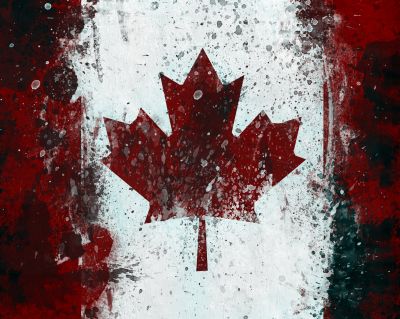Canadian PM Trudeau Slams Facebook Amid Wildfire Crisis

Canada’s government continues to turn up the heat against Meta, with Prime Minister Trudeau calling news ban ‘inconceivable’
Days after Canada’s government demanded Meta Platforms lift its ban on news for Facebook and Instagram users in the country, the Canadian Prime Minister has launched a scathing attack against the firm.
Earlier this week Canadian Transport minister Pablo Rodriguez spoke with Meta representatives and demanded the news ban be lifted to allow Canadians to access information about the wildfires.
He previously warned Meta about the “risks” posed by its ban on news links, adding: “What Meta is doing is totally unacceptable.”
![]()
News withdrawal
It comes after Canadian officials issued evacuation orders last week affecting an estimated 60,000 people in the Northwest Territories, including Yellowknife, after more than 230 wildfires were reported in the area.
Fires have burned more than 34 million acres in Canada so far this fire season, far more than the previous annual record of 18.3 million acres set in 1989.
But the showdown with the Canadian government has been looming for months now.
Back in June, both Meta and Google had warned they would end access to news on their respective platforms for users in Canada, in response to Canadian legislation requiring tech giants to pay news publishers.
Then at the start of August, Meta began the process of ending news availability in Canada.
Google also said it will pull news in five months time, when the law kicks in.
In response to Meta’s move, the Canadian government said it would halt advertising on Facebook and Instagram.
Meta and Google took the decision after the Canadian parliament passed the Online News Act, or Bill C-18.
The Online News Act became law in June after receiving royal assent from the governor general but has yet to take affect. The bill essentially lays out rules requiring platforms such as Meta and Google to negotiate commercial deals and pay news publishers for their content.
Meta and Google have opposed C-18 right from the start, and Meta called the law “fundamentally flawed legislation that ignores the realities of how our platforms work.”
Meta said it is not a media platform and that paying for content shared over its services would be unsustainable.
Google meanwhile said Canada’s Online News Act “remains unworkable” and was much broader than similar legislation passed in Australia back in 2021. It said it will remove news links to Canadian news sites from its search and other products.
It should be remembered that the Australian government agreed to change parts of its ‘media bargaining law’ after Facebook pulled all local and international news on its platforms (including Instagram) in Australia.
Facebook blasted
Now Canadian Prime Minister Justin Trudeau has blasted Facebook for “putting corporate profits ahead of people’s safety”.
“It is so inconceivable that a company like Facebook is choosing to put corporate profits ahead of ensuring that local news organisations can get up-to-date information to Canadians, and reach them where Canadians spend a lot of their time; online, on social media, on Facebook,” Trudeau said during a news conference Monday.
Trudeau also said that Facebook’s move to block news content is “bad for democracy” in the long run.
“But right now, in an emergency situation, where up-to-date local information is more important than ever, Facebook’s putting corporate profits ahead of people’s safety,” Trudeau was quoted as saying by CNN.
A Meta spokesperson told CNN in a statement on Monday that Canadians “continue to use our technologies in large numbers to connect with their communities and access reputable information, including content from official government agencies, emergency services and non-governmental organisations.”
The new legislation in Canada “forces us to end access to news content in order to comply with the legislation but we remain focused on making our technologies available,” the statement added,
It pointed to Meta’s Safety Check tool, which the company said more than 45,000 people had used as of Friday to mark themselves as safe.
The Meta spokesperson added that 300,000 people have visited the Yellowknife and Kelowna Crisis Response pages on Facebook.